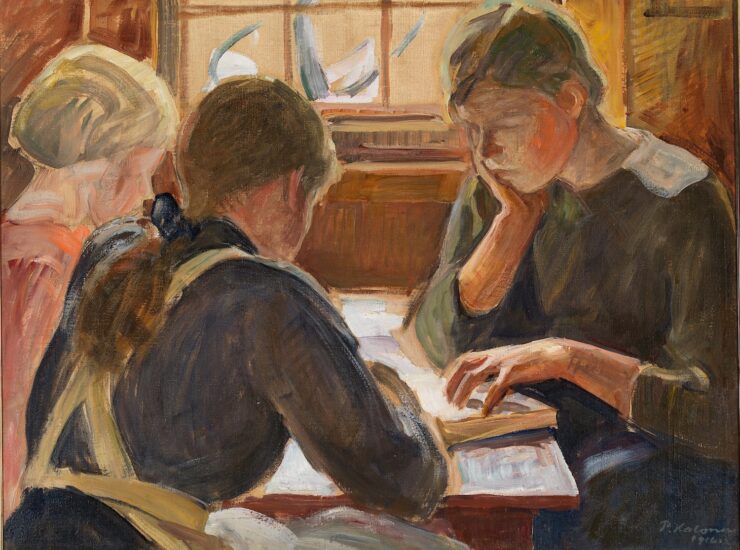Twice in the last few months I’ve read books about which I began to feel a little uncertain as I drew closer and closer to the end. Was I missing something? I turned the advance reader’s copy of each of them over and over, making sure I hadn’t read the back too quickly, if at all. Nope: Not a word about a series. Not a breath about a sequel. And yet both ended in such a way that it was obvious there was more to come. I found the details about one book buried on the author’s website, and had to resort to more nefarious means (asking friends who worked for the publisher) about the other. Yes: both were the first book of a series. Both duologies, in fact.
And this seemed almost like a secret.
It’s an odd thing, the imagined divide between series readers and standalone readers. (Almost as odd as the word “standalone,” which doesn’t look real after you’ve read it a few dozen times.) I’ve been reading forums and subreddits and blog posts, curious about whether “series fatigue,” or sequel fatigue, is real: Are we SFF (especially F) burnt out on long series? Are we tired of series in general, or do we just get tired when trying to gulp down a pile of epic fantasies all in one go? Are we that impatient about endings, or so influenced by a couple of notable unfinished series that we think nothing will ever end? Do we just want things with a beginning, a middle, and a grand finale—a shape that can feel like it’s missing from life in the last few years especially?
It doesn’t seem like it, to tell you the truth. It seems like people read like they always do: omnivorously, broadly, with a few rare holdouts who only read standalones or only want to be immersed in multi-book series. One person said they hate endings and want to put them off as long as possible, and I grimaced in understanding: the last Fitz and the Fool book is still on my shelf. The second one made me ugly cry on an airplane, the payoff of decades of poor Fitz’s struggles. I’m not ready to be done, and I’m not sure I’m emotionally stable enough to handle it. I like to save last books until I’m ready, sometimes.
But I also like to read series in one big gulp, to drag them out over months or years, and to ignore them for long swaths of time in favor of singular novels that wrap themselves up in a tidy bow, or odd little books I’m not sure I understand but love anyway. Who hasn’t read a standalone novel that they desperately wished was a series? Who hasn’t finished a series and thought that it maybe could’ve been just the tiniest bit shorter? And who hasn’t finished a series and wished for one, two, five more books?
There are as many ways to read as there are readers, and more shapes for a story to take than I could possibly detail here. The true standalones (every Helen Oyeyemi book, which could be nothing else); the standalones set in an overarching universe (like Banks’ Culture books); the sequential series with a primary protagonist (like Hobb’s Farseer trilogy); the series with ever so many voices (like the Expanse); the loose series where the books are standalones but they also fit together. I’m enjoying longing for the next books in Daniel Abraham’s Age of Ash series, in which each book takes place in the same city in the same year, but is about a different character. The first one could certainly be read alone—but how you could finish it and not want to see Abraham’s grand city through another set of eyes, I really don’t know.
It’s that anticipation that’s been on my mind lately, as I continue to neglect new seasons of TV shows I really love (sorry, The Great and Russian Doll) because I find the all-at-once drop just too overwhelming. “You can just watch one at a time!” you’ll say, and it’s true! I could! But it’s just not the same as the steady drip of weekly episodes, the feeling of appointment TV, impatience and curiosity building as more people catch on and catch up. Severance was the best possible case of this: It felt like no one was watching it, and then it felt like everyone was. That show was made to be taken in small doses. It needs time to sink in, to get into your pores and work its magic.
Books are like that, too. There’s a specific anticipatory joy in learning a beloved author has a new series coming out—another story to dive into, to stretch out, to think about and reconsider and dream about between books. I fell hard for N.K. Jemisin with the first book of the Dreamblood duology; waiting for every book since then has been a delight (six months until The World We Make!). I don’t know if I’ve ever been as excited about a sequel as I was about Rachel Hartman’s In the Serpent’s Wake, honestly. But then there’s Kristin Cashore’s Seasparrow.
Those last two are odd cases, though, in that both are books in series that I initially didn’t know would be series. Cashore’s Graceling was singular and self-contained; so was Hartman’s Tess of the Road, a book I love beyond measure. Every subsequent book in the Graceling Realm has felt like a wonderful surprise, but then, almost every book in that world stands alone (Winterkeep doesn’t, not quite). Hartman’s two duologies start with a standalone book and then enlarge themselves, miraculously, in each sequel.
Do we absolutely need to know a book is going to be part of a series? Not necessarily. Not when it really, truly, cross-your-heart-I-mean-it works on its own. No cliffhangers, no heavily teased unsolved mysteries, no staring meaningfully at the land across the waves. This isn’t to say everything has to be perfectly resolved, but readers know the difference. When you get to the end of a book and the door is wide open, the characters having clearly run off to continue their adventures, it’s a bit disconcerting to flip the book over and wonder why it doesn’t say Book 1 of the Most Excellent Adventure anywhere on it.
If I had to guess why this happens, I would point a wary finger at publishing’s obsession with preorders. They have heard that some readers don’t want to read series until all the books are out, and they don’t want to put a dent in the preorder numbers. But then why some series and not others? Why do some series launch with epic series fanfare, a whole list of titles to come, and others sneak in once the series party is in full swing, lurking furtively by the half-empty punchbowl?
For me, I just want to know. I like to know how to approach a book, whether to pace myself in the knowledge that this is it, the full story, no more to come, a singular experience never to be repeated—or whether to settle in, to accept that the end isn’t really the end, to acknowledge the narrative threads that wave tantalizingly in the breeze as the author strides past, knowing they’ll be back to tie those up. Waiting for something to continue doesn’t feel passive to me. The space in between the books—or the chapters, or the TV episodes—is when my brain gets to gnaw on the meaty parts of the story, to let things percolate, to find new currents among the characters, or remember little moments that change the meanings of things. There are shows I’ve started to like better between seasons, books I’ve changed my tune about after sitting with them for a while. Everything takes time.
Still, that doesn’t mean you always want to give things your time. Getting fed up with a series is totally valid, and so is walking away from one that’s not doing it for you anymore. But impatience can also be good; it’s tied up with enthusiasm and delight and having something to look forward to. I like waiting. Waiting is time to read other books, ones not in the series I’m impatient for the end of. There is always something else to read—a novel you missed from another year, a series you’ve been putting off. Or maybe that last book of a series you weren’t quite sure you were ready to be over.
Molly Templeton lives and writes in Oregon, and spends as much time as possible in the woods. Sometimes she talks about books on Twitter.














